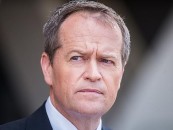Hot on the heels of the free trade deal with China there is clamouring for further deals with the likes of India and Indonesia. But if we want higherwages, cheaper stuff, less red tape and a better deal for the world’s poor, we needn’t bother with more free trade deals. We just need to get rid of our tariffs.
Many believe we now only have tariffs on cars and clothing. In fact, we impose tariffs on nearly all categories of imported products, in an absurd and scattergun way.
There’s a five percent tariff on margarine, a four per cent tariff on dairy spreads, but no tariff on butter. There’s a five per cent tariff on pasta, a four percent tariff on bulgur, but no tariff on cous cous.There’s a tariff on almonds but not walnuts, strawberries but not raspberries, maple syrup but not golden syrup, biscuits but not crispbread. And when you paid for Christmas lunch, there was a tariff on the ham but not the turkey.
Beyond the world of foodstuffs, there’s a tariff on guitars and drums, but not violins and pianos. On calendars but not diaries. On towels, but not tea towels. There’s a tariff on granite and sandstone if it’s in blocks, but not if it’s ‘roughly trimmed’. A tariff on flat steel if it’s coated with zinc, but not if it’s coated with tin. A tariff on umbrellas,except those with a telescopic shaft.The list goes on and on.
Administering this list requires hundreds of customs officials to check that the correct tariff is imposed on each product. It drives importers crazy and discourages potential importers from even bothering to offer their products to Australians.
Customs officials not only have to determine what sort of product they have in front of them, but also its country of origin. There aredifferent tariff rates depending on whether a product originally comes from a least developed country, a developing country, or a country with which Australia has made a deal.
Havingdifferent tariffs fordifferent countries messes up our trading.When we reduce tariffs on products from a high‑cost countrywhile retainingthem on products from a low‑cost country, imports from the high‑cost country increase at the expense of the low‑cost country. Australians end up paying the same price for the same sort of product whileour customs officials gather less revenue.
Whenever Australian businesses use imported products or materials on which tariffs are imposed, they pass on the costs. Overall that leads tolower sales, fewer workers and lower wages. Other local businesses divert their production away from what they are good at in order to produce a local version of the imported products, and Australia is poorer as a result.
And whenever we impose tariffs, we hurt the world’s poor. Tariffs make us buy less of the stuff that the world’s poor are good at making. This not only hurts them in the short term, but is crushing over the long term as it reinforces their dependence on aid.We substitute paying them for working with giving them money for nothing.
Following the recent free trade deals with China, Japan and South Korea, two thirds of our trade is now with the thirteen countries with which we have a deal. The remaining third is with hundreds of countries. We should unilaterally remove tariffs on products from these countries too. This would not only give us access to some of the world’s best products at the cheapest prices, butwould help the world’s poor regardless of what country they are in.
Seeking deals with these hundreds of countries is not the way to go. It would cost millions to fly Canberra bureaucrats to negotiations around the globe, and any improvement in market access would have little impact on our export pricesand volumes. The next22 countries being targeted for future deals, such as India and Indonesia, account for just six per cent of our current trade.
And holding out for more deals would require us to retain our self‑destructive tariffs for longer, when we have the option to rid ourselves of them right now.It amounts to saying, we won’t stop harming our economy until you stop harming yours.
Tariffs (excluding special tariffs on fuel, alcohol and tobacco) contribute just $3 billion towards the Commonwealth Government’s annual budget of around $400 billion. Compared to the significant nuisance cost they impose, this is a small revenue contribution. We should get rid of this nuisance without delay.
David Leyonhjelm is the Liberal Democrats Senator for NSW








